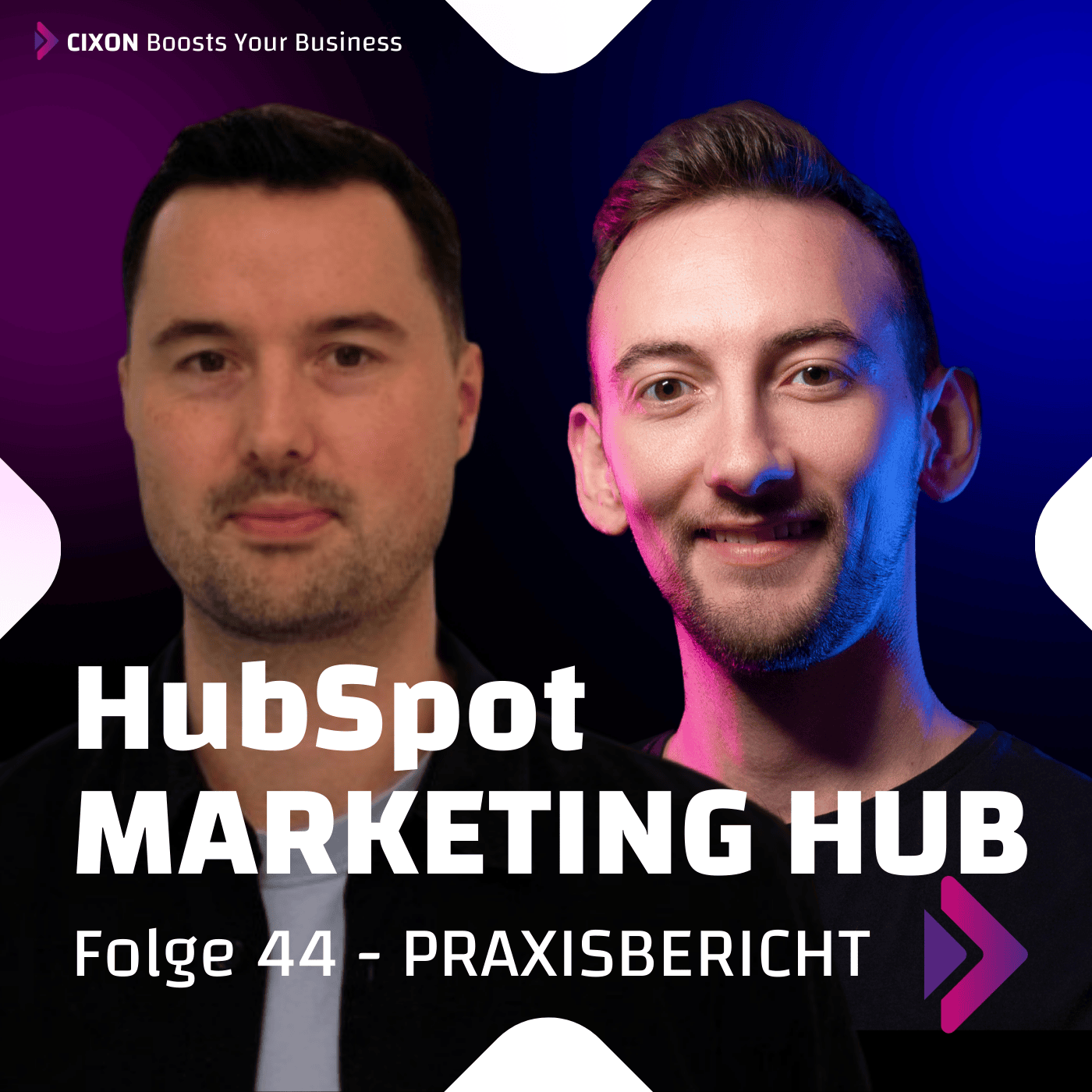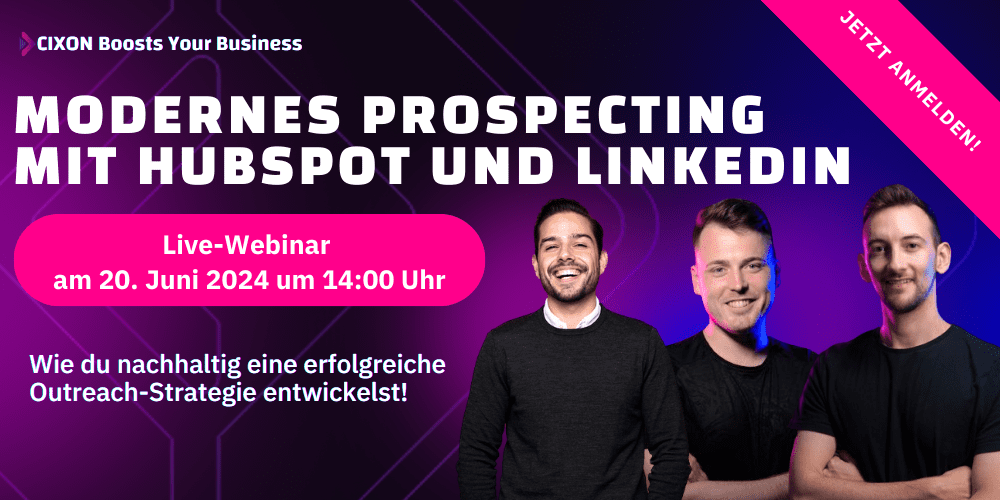In today's digital world, small and medium-sized enterprises (SMEs) and start-ups face the challenge of positioning themselves efficiently on the market. The key: a powerful, easy-to-use CRM system like HubSpot. In this podcast episode by Dominik Enzler and Jan Simon from HubSpot, you can find out why the HubSpot Marketing Hub plays a central role here and how you can use it specifically for more visibility, leads and growth.
1. the evolution of HubSpot and inbound marketing
HubSpot has been synonymous with inbound marketing since it was founded. While the focus used to be strongly on organic findability and SEO, we are currently experiencing a decisive change:
-
Customer expectations are rising: speed and personalization are standard.
-
Competition is intensifying: organic traffic is decreasing - AI search engines are changing the rules of the game.
-
Digitization must follow suit: Many SMEs are still working with isolated solutions and Excel spreadsheets.
This means that companies now need to digitize their entire customer journey in a well thought-out way - not just individual marketing measures.
2. marketing hub: your most important tools for 2025
In the interview, we worked out which tools are currently particularly relevant in the Marketing Hub - for start-ups and SMEs alike:
(a) Content Remix and Content Agent (AI)
-
Create content for blogs, social media and landing pages with just a few clicks.
-
AI-supported content recycling and playout on multiple channels.
-
Benefit: Saves time, increases output, boosts visibility.
Tip: Use Content Remix to systematically convert campaigns into blog articles, posts and ads - all from a single briefing.
b) Journey automation - the new way of thinking about workflows
-
Create branched customer journeys with multiple workflows in one clear process.
-
Use different trigger points (e.g. behavior on the website, opening emails).
Tip: Build journeys that react flexibly if a lead behaves differently than expected - for maximum conversion optimization.
c) Buying intent - Recognize prospects outside your database
Tip: Integrate buying intent into your lead scoring models to prioritize the hottest contacts to your sales team.
3. why basics are more important than ever
Despite all the AI innovations, the basics remain crucial:
-
Clear target group knowledge (really define personas)
-
Clean database (no data silos, standardized CRM)
-
Transparency between marketing, sales and service
Your advantage with HubSpot: All activities are combined in one platform. Everyone in the team knows what the customer did last - and can respond to this in a targeted manner.
5. outlook: What can we expect in 2025?
-
Stronger linking of CRM and AI: prompts directly in workflows, automation of individual customer journeys.
-
Even more focus on platform strategies: HubSpot is opening up even more to integrations and multi-account structures.
-
Data quality becomes the decisive competitive advantage.
What this means for you: Set up clean CRM processes now, enrich data, test and adapt AI tools in a targeted manner. Not everything will be needed tomorrow - but companies that lay the foundations today will benefit in the long term.
Conclusion: HubSpot Marketing Hub 2025 as the foundation for your new CRM strategy
Whether you are a start-up or a medium-sized company, HubSpot 2025 offers you the tools you need for sustainable growth. The prerequisite is that you start strategically: customer focus, data quality and process clarity first, then targeted automation and the use of AI.
Let us analyze your status quo together in a HubSpot audit and show you how you can best use HubSpot for your growth.
If you want to stay up to date with the latest trends in CRM, subscribe to our free newsletter here.






